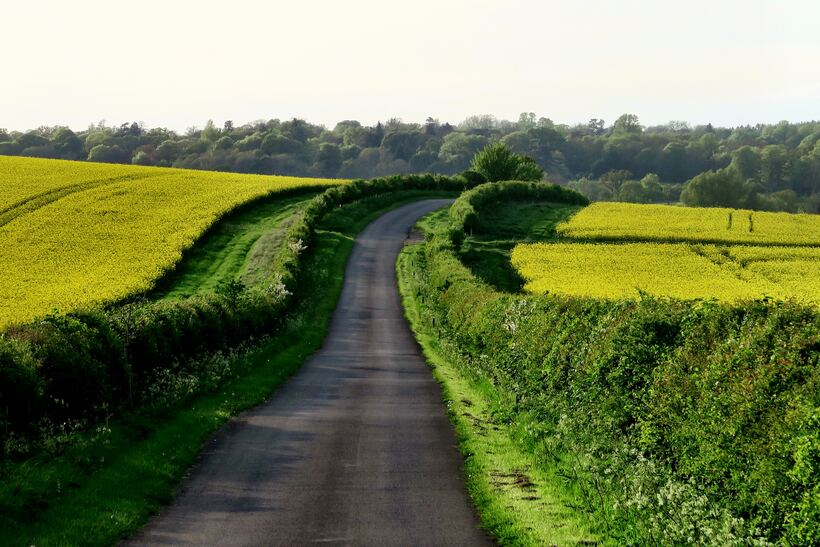Towards equality: a Quaker campaign for a Land Value Tax
UPDATE: An information sheet
Towards equality: the hidden value of property(PDF) is now available.
There is inequality in land ownership and land is seen as a private resource rather than a collective one. Jocelyn Gaskell of Yealand Local Meeting is hoping to challenge this with a Land Value Tax campaign. She invites others to join her.

In recent years I have been part of a wider group of Quakers who are connected by a desire to better understand the economic and social problems we face, and seek radical change together. Quaker Peace & Social Witness have supported our concern by offering an online economic mythbuster course and establishing new economy reading groups.
I have not been educated in political economy, and being part of a new economy reading group helped me to understand a little more and feel able to join the discussion of alternative economic systems. In particular, I am better informed on how to move towards a fairer and more equal distribution of resources.
In November 2017 I was able to develop my interest in Land Value Tax (LVT) at QPSW's recent new economy training weekend in Manchester. Friends encouraged me to write down why LVT feels right for me as a Quaker and right for the country as a means to fair resource distribution. I have now written an in-depth briefing that introduces what LVT is, argues why it is needed and suggests how Quakers could further help to bring it about.
I am motivated to do this by a concern for peace and justice which has been at the core of my Quaker witness of the last ten or so years. Equally, as someone who has more than once been in housing need, I have been aware of the UK housing crisis as it has developed over the past twenty years.
What is a Land Value Tax?
LVT is based on the idea that the wealth you create is yours, but the wealth which exists in nature – the 'common treasury' – belongs to everyone. So, rather than valuing land according to what it can be bought or sold for, every parcel of land, from scrub land to land rich in minerals, or in prime locations, is assessed for its rental value.
LVT assesses the value of the site alone, not counting any improvements to the site. Thus, the value of any buildings, crops, drainage or anything else which people have put on, or done to, the site would be ignored.
Values start low in agricultural land, and increase as the development proceeds to industrial and commercial land to the high value associated with retail and services based on finance and investment. Proximity to a major metropolis will therefore enhance land values.
The introduction of Land Value Taxation can be seen as a tax shift rather than as an additional tax. It would permit other taxes to be reduced or, in some cases, to be abolished altogether.
How can we start the conversation?
If you have felt any lack of confidence in discussing the economy, I encourage you to join or start a reading group at your own meeting. The issue of land ownership is explored in the sixth new economy booklet (PDF), or you can contact QPSW for free paper copies.
When public support for LVT exists, as other countries show, introducing the policy is relatively simple. But first, public opinion must be won over – and in the UK public understanding of land reform is very low. I write to you as a Friend, and invite you to join me in exploring how we can work together to share LVT and land reform ideas with a wider audience.
UPDATE: An information sheet Towards equality: the hidden value of property(PDF) was produced in 2019 by the Quaker LVT group with the help of a QPSW new economy grant.
For information, contact quakerlandvaluetax@gmail.com